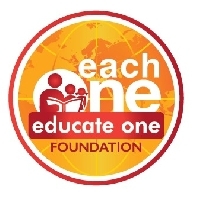Education in India has been a key driver to help move large segments of the population on to the growth path that the nation has been witnessing for some time now. However, this trend has been a rather skewed one and has mostly remained an urban phenomenon. Sadly, rural India, which accounts for nearly 60% of the educable population of our country has not been a beneficiary in equal measure, because quality education continues to be a privilege rather than a right in these parts.
Considering that nearly 70% of India continues to live in its villages, it is imperative that a level playing field as far as access to quality education is concerned, is created as quickly as possible. If this persisting imbalance is not corrected soon enough and the opportunity to free large sections of the
disadvantaged and the underserved in our society out of the vicious cycle of poverty illiteracy i s not acted upon immediately, the negative consequences and costs to society and the Nation at large will prove to be irreversible for a long time to come.
While the Right to Education Act passed in 2009 much needed legislation meant to spread the reach of education by spurring enrolment into schools in rural areas across the country did drive the enrolment ratio up from 81.16% to 96% in the primary education segment (age group 6 14), it also witnessed high drop out rates, teacher absenteeism, poor teaching quality, insufficient resources and poor learning outcomes which today plague India’s schooling system. Thus, a well intentioned legislation which was meant to make education accessible to the rural poor and other backward, underprivileged sections of our society has fallen woefully short of spreading literacy through meaningful and desirable learning outcomes, due to its inherent structural issues pertaining to design of curricula and ingrained rote learning methods.
While the government continues to grapple with the issues and ills begotten from the public schooling system conceived under the RTE Act of 2009 and the private sector schooling network goes about its business of replicating unaffordable models of education, there is a significant gap that needs to be bridged as far as inclusiveness and quality are concerned. The essential first step, therefore, is to build awareness in society of the dire need for accessible and inclusive quality education which is otherwise beyond the reach of the underprivileged masses of our country followed by a clarion call for large scale societal participation to make education truly accessible and inclusive. And so, the Each One Educate Foundation, a For Impact NGO, is here to ensure that this right is met where its need is utmost today in Rural India.

Manager Data Analytics and CSR Communications in Each One Educate One Foundation
A big thank you to all those who have donated on this page.